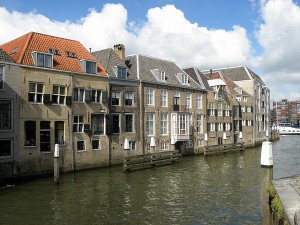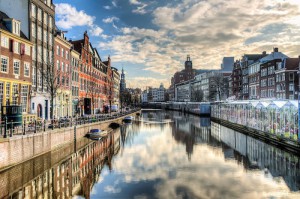Top Dialects of the Dutch Language
Dutch is most commonly spoken in the Netherlands, and is the nation’s official language. However, Dutch is also spoken natively in Belgium, and even in the South American country Suriname. As a result, the world’s 20 million native Dutch speakers speak several different dialects, which differ importantly from one another. Here’s a list of some of the most common Dutch dialects.
Image via Amsterdam – the Canal Ring / Wikipedia
1. Hollandic
The Hollandic dialect is widely-spoken, and is native to major urban areas like Amsterdam and Rotterdam. Especially in these urban areas, it bears a closer resemblance to the standard version of Dutch that’s used in the media and taught in schools. The Hollandic dialect will be familiar to those who are learning Dutch, as it is the most common dialect to be taught to second-language learners.
2. Brabantian
Along with Hollandic, Brabantian is one of the major dialects of the Dutch language. It’s spoken in a wide geographical area, which spans from the southern portion of the Netherlands into Belgium. About 5 million people use the Brabantian dialect.
A typical phrase you’ll hear in Brabantian Dutch is houdoe, which derives from houd u geod (“keep yourself alright”). This is a form of saying goodbye (similar to “take care” in English). In Hollandic Dutch, it’s more common to simply say deoi (“bye”).
How good is your Dutch? Find out by taking our free online Dutch level test!
3. West Flemish
Spoken by about a million people in the West Flanders region of Belgium, West Flemish is generally considered to be a dialect of Dutch, but is very different from Hollandic or Brabantian. It can be difficult for speakers of Hollandic or Brabantian to understand speakers of West Flemish; in fact, when television programs in West Flemish are broadcast in other dialects of Dutch, they often use subtitles. For this reason, there is some debate as to whether West Flemish should be classified as a dialect or a language.

Image via Pixabay
4. Limburgish
Like West Flemish, there is debate as to whether Limburgish should be classified as a dialect or a language. It’s spoken around the border of the Netherlands, Belgium, and Germany, and as such, has a significant amount of influence from German. In fact, it’s unclear if Limburgish should be considered a variant of Dutch or German! Most scholars, however, classify it as a Dutch dialect.
Dutch is often considered to be one of the easiest languages to learn for English speakers, as the two language share a lot of vocabulary and grammatical features. Still, don’t go at it alone: the best way to learn Dutch as quickly and efficiently as possible is to take tailor-made Dutch courses from a native speaker. Send a quick inquiry our way to find out how we can help you learn Dutch.



